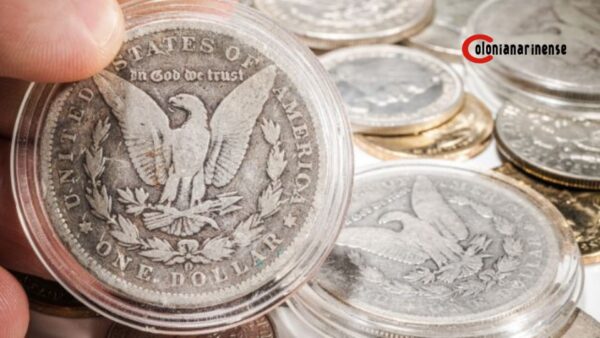Investing in Collectibles: Advantages and Disadvantages

Investing in Collectibles
Collectibles have become a significant part of the global market, with private collections valued at over $1 trillion. Collectors can invest in anything from wine, stamps, jewelry, and toys to fine art, classic cars, and much more. The world of collectibles is vast, and many collectors start their journey as a hobby, eventually amassing items worth millions. But is investing in collectibles a smart financial move? Let’s explore more about collectibles, their value, and the potential advantages and disadvantages of investing in them.
What Is a Collectible?
A collectible is a rare or popular item that the owner usually doesn’t want to sell, mainly because of its value and uniqueness. Over time, collectibles appreciate in value due to their rarity or the interest they generate among enthusiasts. Collectors often focus on specific categories, such as comic books, stamps, coins, antiques, or even action figures. They take care of these items to ensure they remain in mint condition, which maintains or enhances their value.
Example: Action figures are a prime example of a collectible with a large market. Some collectors even have unopened boxes of these toys, which are considered incredibly valuable.
How Are Collectibles Different from Antiques?
Many people confuse collectibles with antiques, but there is a distinction. While all antiques can be collectibles, not all collectibles are antiques. Antiques are typically older items with historical significance, while collectibles can be contemporary items produced in limited quantities. For example, a special edition Rolex watch may be considered a collectible, while a piece of antique furniture passed down through generations may have more sentimental value than market value, depending on the buyer.
Insurance for Collectibles
If you own collectibles, it’s essential to protect them through insurance. Many regions offer specialized collectible insurance that protects these items against theft, damage, fire, or natural disasters. Considering the value of some collectibles, insurance is a small but necessary expense for safeguarding your investment.
Factors That Influence the Value of Collectibles
Several factors determine the value of a collectible. Before buying or selling, it’s crucial to consider the following aspects:
- Condition: The item’s physical state.
- Rarity: How rare the item is.
- Authenticity: Proof that the item is genuine.
- Appeal: The level of interest the collectible generates among potential buyers.
- Origin: The item’s history or cultural significance.
Advantages of Investing in Collectibles
- Passion and Hobby Collecting can be more than just an investment—it can be a hobby that brings you joy. If you’re passionate about a particular type of collectible, each addition to your collection is a personal investment in your happiness.
- Diversification Investing in collectibles can diversify your financial portfolio. Collectibles function as alternative assets that don’t always correlate with traditional investments like stocks or real estate, reducing your overall financial risk.
- Potential for High Returns Over time, the value of collectibles can increase dramatically. There are numerous stories of collectibles that were purchased for modest sums and later sold for millions. When you’re ready to sell, you can sometimes create a bidding war among interested buyers, significantly driving up the final price.
- Social Networking Engaging in the collectibles market can open doors to a like-minded community. Many collectors build networks and relationships with other enthusiasts, which can be rewarding both personally and professionally.
- Confidentiality Unlike stocks or real estate, collectible investments offer a higher degree of privacy. Many investors prefer collectibles because of the discretion they provide, allowing them to grow their wealth without drawing attention.
- Exhibition Opportunities If you accumulate a significant collection, you can showcase it through exhibitions, potentially generating a regular income stream. Exhibitions also allow you to meet other collectors and enthusiasts who share your passion.
- Low Correlation With Other Assets Unlike traditional asset classes like stocks and bonds, collectibles tend to have a low correlation with the broader market. This means their value may remain stable or even rise during times of market volatility, making them a good hedge in uncertain economic conditions.
Disadvantages of Investing in Collectibles
- Niche Market The collectibles market is relatively niche, meaning it can be challenging to find buyers or sellers. You’ll need to do your research and build connections to ensure you’re making informed decisions.
- Subjective Value The value of a collectible is often subjective. What one person values highly, another may not be willing to pay for. This makes negotiations tricky, as it can be hard to establish a fair market price.
- Lack of Liquidity Collectibles aren’t as easily converted into cash as stocks or bonds. Finding the right buyer can take time, and in some cases, it may take years to sell a high-value item.
- Market Volatility The collectible market can be highly volatile. The value of certain items can fluctuate based on trends, interest, or the emergence of similar items. Predicting these changes is challenging, making the investment riskier.
- Storage Costs Properly storing collectibles can be expensive. Whether you’re collecting vintage cars or rare comic books, each type of collectible requires specific conditions to maintain its value. The cost of storage and preservation can quickly add up.
- Risk of Counterfeits The collectible market is rife with counterfeits, and many people go to great lengths to create convincing replicas. Before investing, it’s essential to verify the authenticity of the item through trusted experts or organizations to avoid falling victim to fraud.
Final Take
Investing in collectibles can be rewarding, both financially and personally. However, it’s not without its challenges. The lack of liquidity, high volatility, and the risk of counterfeits mean you should only venture into this market if you’re passionate and willing to dedicate time and effort to building your collection. That said, with proper research, connections, and patience, collectibles can serve as a unique and potentially lucrative investment. So, if you’re considering entering this fascinating world, be sure to evaluate both the risks and rewards, and most importantly, choose collectibles that bring you joy.





